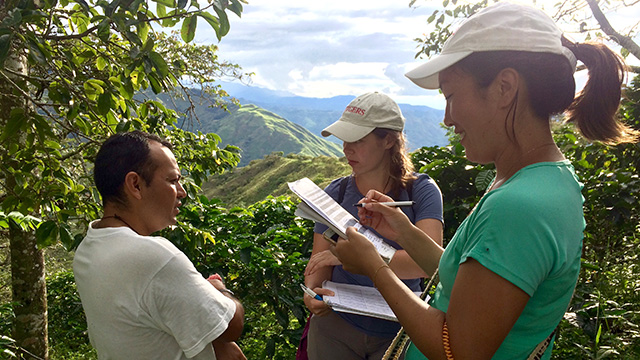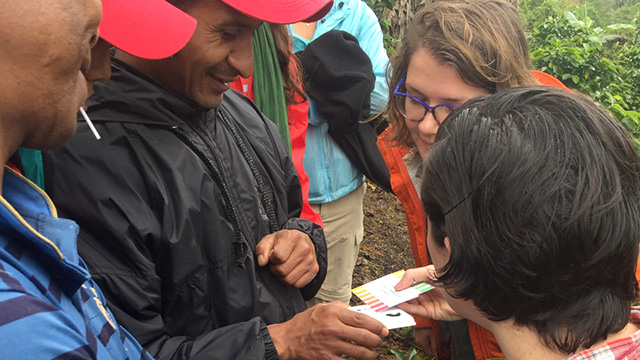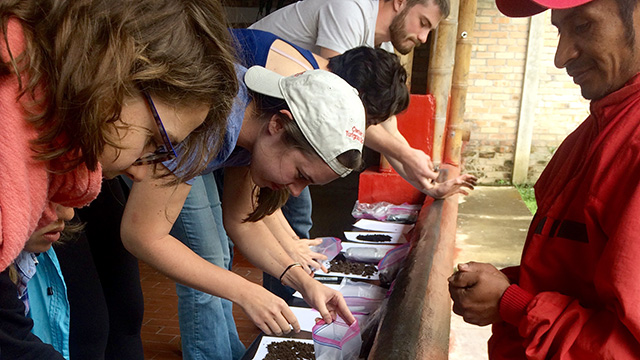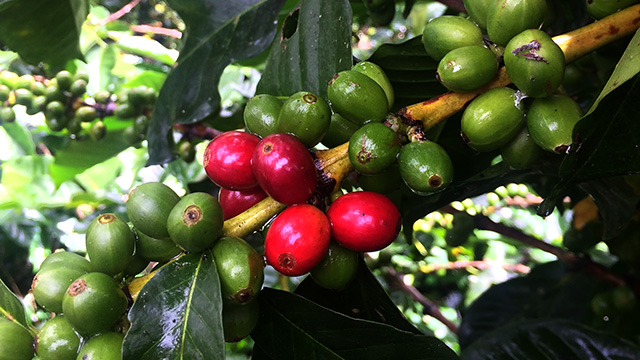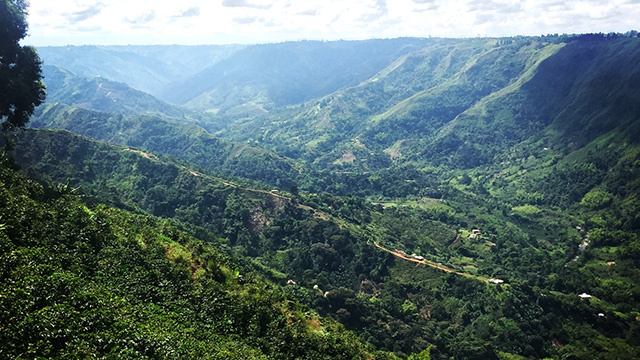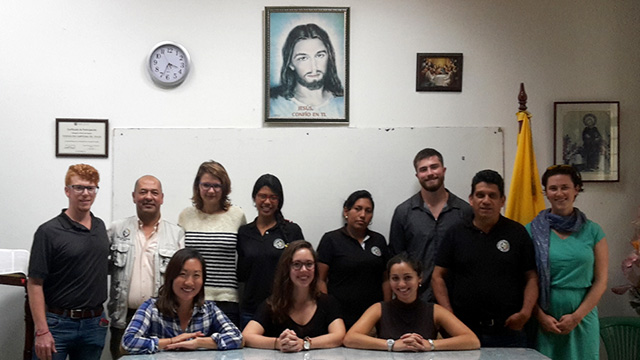From Juana Muñoz Ucros and Marie Zwetsloot, Graduate Field of Horticulture, Bauerle Lab
Tucked away in the western arm of the mighty Colombian Andes lies the Cauca coffee-growing region. A stunning mixture of Afrocolombians, indigenous people and Spanish descendants fuses together around the culture of artisanal coffee growing.
Without machinery and with very few inputs — but enormous amounts of creativity — these farmers optimize yield in plots usually less than 2 acres. And even in the face of unpredictable weather, they manage to put children through college, pay off their loans, and experiment with organic farming.
In January, we led a student learning and research trip to Cauca as part of the Student Multidisciplinary Applied Research Team (SMART) program of the Cornell International Institute for Food, Agriculture and Development (CIIFAD). We made use of a previously established relationship with a cooperative of coffee farmers, Federación Campesina de Cauca (FCC), by Miguel Gomez and his graduate students in Applied Economics and Management.
Our group consisted of students from different disciplines and included Shanti Kumar and Jenny Lee from International Agriculture and Rural Development, Sam Bosco from Horticulture, Lizzy Sweitzer Cornell Institute of Public Affairs, and Whit Knickerbocker from Agronomy and Agribusiness Management.
During our visit, the team visited both organic and conventional coffee farms with the aim to better understand the economic, social and environmental challenges and opportunities that households from these different food production systems face. We interviewed the farmers about their management practices and took soil samples to evaluate pH and active carbon content of the soil. As an outcome, we left the FCC with a low-cost alternative to expensive lab soil tests that can inform them of soil health status and better direct their limited resources.
Full of pride and also of knowledge, the coffee producers showed the team around their farms and explained their philosophy and techniques. Even though communicating in Spanish wasn’t always easy, the producers were very patient in explaining their perspectives and sharing their experiences. Coffee farming is a tough living; stories of fluctuating coffee prices, health issues due to pesticide exposure and climate change were part of almost every conversation. The prospect of a peace deal finally put into action brings a smile to the farmer’s faces, but their reality is still one of political turmoil, government neglect, and ever present coffee leaf rust.
Besides the remarkable views of the endless mountains, one of the things that stood out was the hospitality and openness of the farmers. We were not allowed to leave the farm without having had at least one cup of sugary coffee, and a sampler of the tropical fruits grown by the family.
Seeing all of this with your own eyes makes you think hard about the coffee we drink every day.
To visit the project’s blog, follow this link: https://smartcolombia2017.wordpress.com/



